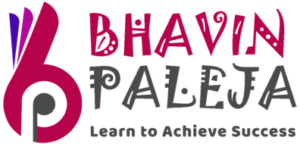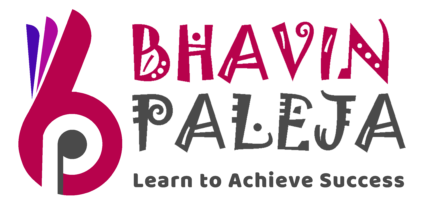Adobe Lightroom
Duration: 2 Weeks
Fees: ₹ 4000/-
Batch Time: 2 Hours from Monday to Saturday
Contact for Available / Preferable Batch Timings (Also for weekends)

Course Description
Adobe Lightroom is a digital photo editing software that provides tools for organizing, editing, and sharing digital images. It is designed for both professional and amateur photographers and offers a range of features for managing large collections of photos.
Lightroom allows users to organize photos into albums or collections, add keywords, and create metadata to help locate specific images. The software also provides advanced search and filtering tools, making it easy to find images based on various criteria such as date, location, or keyword.
Lightroom’s editing tools provide precise control over image adjustments, such as exposure, color temperature, contrast, and saturation. It also offers tools for fine-tuning specific parts of an image, such as the shadows, highlights, and color balance. The software also provides various presets that can be applied to photos for a quick and easy way to achieve a particular look or style.
Lightroom also offers features for creating and sharing photo galleries and slideshows, as well as exporting images in a variety of file formats, including JPEG, PNG, and TIFF.
Overall, Lightroom is a powerful tool for managing and editing digital photos. It is widely used by professional photographers, but it is also accessible to amateur photographers who want to enhance their photo editing skills.
Course Eligibility
Anyone who is interested in photography or working in the photography industry can benefit from learning Adobe Lightroom. Here are some specific examples of who should consider learning Lightroom:
- Photographers: Lightroom is an essential tool for professional photographers, and anyone who is serious about photography should learn how to use it. Whether you’re a portrait photographer, landscape photographer, or any other type of photographer, Lightroom can help you organize and edit your photos to make them look their best.
- Photo Editors: If you are working as a photo editor for a media outlet, you need to know how to use Lightroom to make precise adjustments to the images you are working on. The software provides a range of powerful tools for color correction, exposure adjustments, and more, which can help you create high-quality images that meet your publication’s standards.
- Graphic Designers: Graphic designers who work with images need to know how to use Lightroom to make precise adjustments to photos. Learning Lightroom can help you create visually stunning graphics and artwork for a variety of media.
- Social Media Managers: Social media managers who are responsible for creating visually appealing content for their brand’s social media accounts can benefit from learning Lightroom. The software can help you edit and enhance images to create eye-catching content that will attract and engage your followers.
- Students: Students who are studying photography, graphic design, or multimedia can benefit from learning Lightroom as part of their coursework. It will give them a valuable skill that they can use in their future careers.
Overall, anyone who is interested in photography, graphic design, or multimedia can benefit from learning Adobe Lightroom. It provides a range of powerful tools for managing and editing digital photos, making it an essential tool for anyone who works with digital images.
Course Opportunities
Here are some career options related to Adobe Lightroom:
- Professional Photographer: Many professional photographers use Adobe Lightroom as their primary tool for managing and editing their photos. Lightroom provides a suite of powerful tools for organizing, editing, and sharing images that can help photographers streamline their workflow.
- Photo Editor: Photo editors use Adobe Lightroom to edit and enhance digital images for various media outlets such as magazines, websites, and newspapers. They work with photographers to ensure the images meet the desired specifications and quality standards.
- Retoucher: Retouchers use Lightroom to retouch and edit images to make them look better. They work on a wide range of images, including portraits, fashion shoots, and product photography.
- Social Media Manager: Social media managers use Lightroom to edit and enhance images for their company’s social media accounts. They are responsible for creating visually appealing content that will attract and engage their followers.
- Photography Teacher or Educator: Photography teachers or educators use Lightroom to teach students about photo editing and management. They may teach courses in photography or digital media at a college or university, or they may provide training and workshops for individuals or businesses.
Overall, Adobe Lightroom can be a valuable tool for a wide range of careers in the photography and media industries. It provides powerful tools for editing and organizing digital images, making it an essential tool for any professional photographer or photo editor.
Course Syllabus
- Import images into the program
- Organize images using metadata and collections
- Make color corrections to images
- Crop, rotate and straighten images
- Use tools to add gradients, remove objects, and add effects
- Add borders and backgrounds to images
- Create and publish photobooks and stunning slideshows
- Print images using layouts and templates
- Export images
Course FAQs
Q: What is Adobe Lightroom?
A: Adobe Lightroom is a popular software used for organizing, editing, and enhancing digital photos. It offers a wide range of tools and features specifically designed for photographers to manage their photo collections, perform non-destructive editing, and apply various adjustments and enhancements to their photos.
Q: What is typically covered in a Lightroom course?
A: A Lightroom course typically covers various aspects of photo organization, editing, and enhancement, including importing and organizing photos, applying basic and advanced adjustments, using filters and presets, retouching and enhancing photos, working with metadata and keywords, creating slideshows and web galleries, and more. Advanced topics may include batch processing, using plug-ins, and advanced retouching techniques.
Q: Who can benefit from taking a Lightroom course?
A: A Lightroom course can be beneficial for amateur and professional photographers, as well as anyone who deals with a large collection of digital photos and wants to learn how to effectively organize, edit, and enhance their photos. It is suitable for beginners with no prior experience in photo editing, as well as experienced users who want to further enhance their skills and knowledge in using Lightroom.
Q: Do I need any prior experience in photography or photo editing to take a Lightroom course?
A: While prior experience in photography or photo editing can be helpful, it is not always necessary to take a Lightroom course. Many courses start with the basics and gradually progress to more advanced topics, making it accessible to beginners. However, basic computer skills and a basic understanding of photography concepts can be beneficial.
Q: Can I take a Lightroom course online?
A: Yes, there are many online platforms that offer Lightroom courses. These courses provide flexibility in terms of schedule, pace of learning, and often offer interactive learning experiences through tutorials, demonstrations, practical exercises, and assessments. Online courses can be a convenient way to learn Lightroom and improve your photo editing skills.
Q: What are the benefits of taking a Lightroom course?
A: Taking a Lightroom course can provide several benefits, including:
Improved photo organization and editing skills: Lightroom offers a wide range of tools and features for organizing and editing digital photos, and learning Lightroom can enhance your skills in managing and editing your photo collections effectively.
Better photo editing results: Lightroom provides non-destructive editing capabilities, allowing you to make adjustments to your photos without altering the original image. Learning Lightroom can help you achieve better and more professional-looking photo editing results.
Streamlined workflow: Lightroom is designed to streamline the photo editing workflow, making it easier to import, organize, edit, and export photos. Learning Lightroom can help you optimize your workflow and save time in your photo editing process.
Access to a large community of users: Lightroom has a large and active community of users, including photographers, who share resources, tutorials, and tips, providing a supportive learning environment and opportunities for networking and collaboration.
Professional-quality photo editing: Lightroom is widely used by professional photographers for editing and enhancing their photos. Learning Lightroom can help you achieve professional-quality results in your photo editing, whether you are a professional photographer or an amateur enthusiast.
Transferable skills: Photo editing skills learned in Lightroom can be valuable in various industries, including photography, graphic design, marketing, advertising, and more.
Personal and professional growth: Learning Lightroom can expand your skill set, improve your creativity, and open up new opportunities for personal and professional growth.



